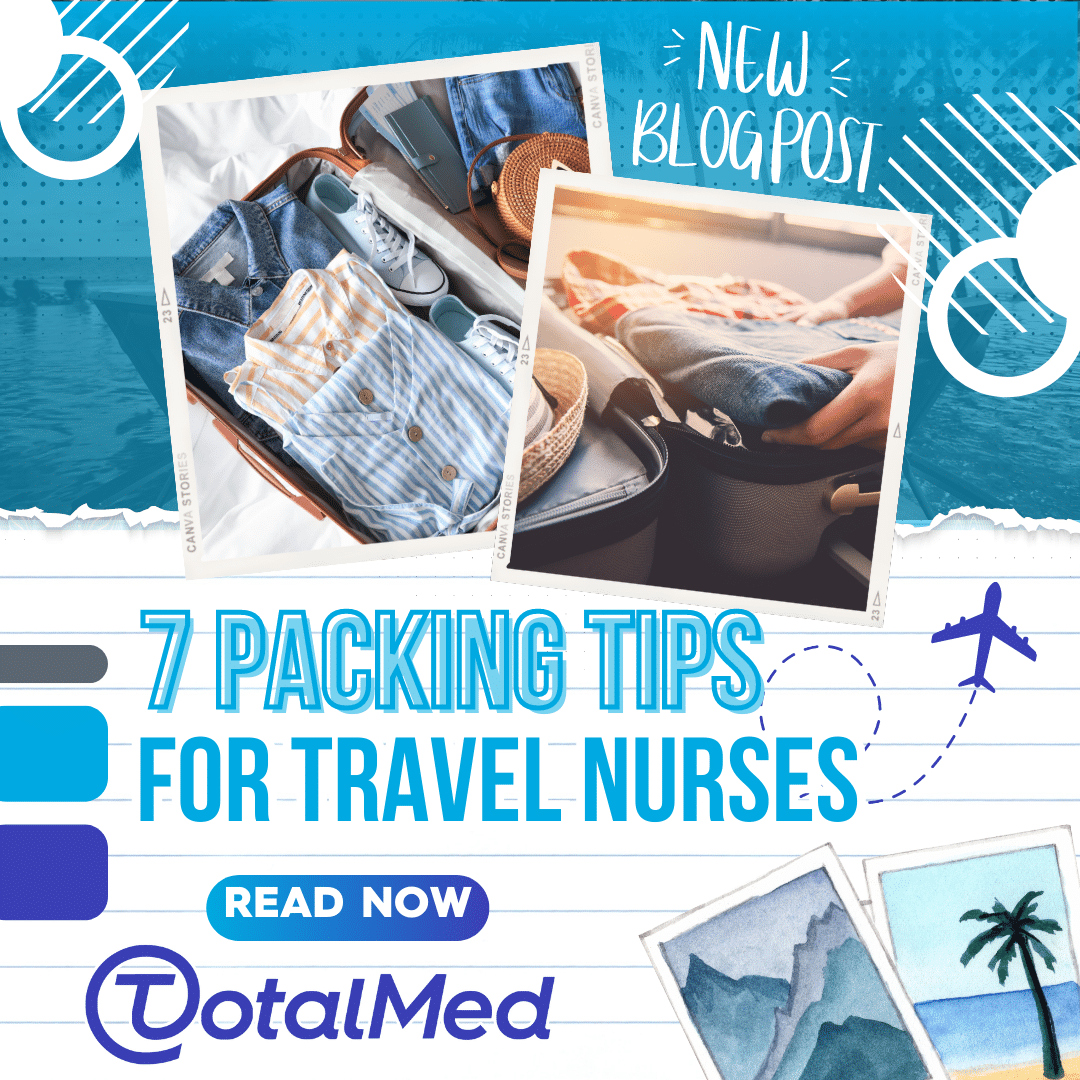7 Packing Tips for Travel Nurses
Whether you're a seasoned travel nurse or a newbie, packing for your assignment can be stressful.

There are many factors to consider such as the weather conditions of your contract city, the types of activities you plan to do, and whether you'll be traveling by car or plane. In addition to all this, you need to think about the amount of clothing to bring, as well as the necessary daily items like toiletries and cleaning supplies. Packing can be quite overwhelming, but don't worry! We've got you covered. Check out our top packing tips for travel nurses below to ease your packing struggles!
Contract Length
Before you start packing for your next assignment, consider the length of your contract! Most contracts are 13 weeks (about 3 months); however, some contracts may be shorter or longer depending on the facility's needs. You may even decide to extend your contract if you end up loving working at the facility. Another thing to keep in mind is whether or not you are taking a break between assignments. While some travel nurses may return home after completing an assignment, others go on vacation. If you decide to travel after your contract ends, make sure to pack accordingly so you do not forget anything!
Weather
The next thing to consider while packing is the weather conditions in your contract city. Depending on your location, you may experience more than one season. Be sure to view the weather history of your city to get a better idea of what to pack. If your contract city is known for large amounts of rain during spring, pack an umbrella or a raincoat. If your contract is between fall and winter, pack multiple layers along with hats or gloves. Knowing the weather conditions of your new city is vital for packing to ensure you bring along clothing or accessories for any forecast!
Activities
During your contract, you may take some time to explore your new city. Before you leave, do some research on what the city has to offer and activities to do on your days off. For example, if you are an adventurist, you may want to pack your hiking backpack, boots, and other gear needed for hiking trails around the area. If you plan on attending local concerts or festivals, bring the proper clothing suited for the area and time of day. Also, if your contract is near an ocean or lake, bring your swim gear and beach necessities for a relaxing day off.
Daily Necessities
While this may be a no brainer, you will be surprised by the number of people who forget to pack items they use on a daily basis. Before you start packing, make a checklist of everything you use every day. Whether it be clothing, small appliances, or toiletries; some items for example would be a phone charger, headphones, alarm clock, hair dryer and straightener, coffeemaker, etc. Making a list of everyday items is a great way to stay organized and ensure you bring your important necessities.
Maximize Packing Space
Depending on the size of your car or if you are traveling by plane or train, your packing space may be limited. When packing for a new assignment, it is important to bring only the necessities. To help save space, try rolling your clothes or using vacuum space bags when packing. There are several tutorials on the internet that provide information on how to fit the most amount of stuff in a suitcase. Another idea would be to pack outfits that can be mixed or matched, or bring multipurpose clothing such as a multiple layer jacket or dresses that can also be worn as skirts.
Emergency Car Kit
If traveling by car, it is important to pack items in case of an emergency. No matter how far of a drive you have, emergencies can occur at any time. For those “just in case moments,” be sure to have an emergency car kit. These kits typically include jumper cables, a poncho, a small first-aid kit, flashlight, emergency triangle, gloves, and batteries. Along with an emergency car kit, you should also make sure to have a jack and ready-to-go spare tire just in case you get a flat tire.
Important Documents
Along with packing your clothing and daily essentials, make sure you have all important documents packed. These items include your driver's license, social security card, birth certificate, car insurance, and all licenses and certifications you have. Before you leave for your contract, it is a good idea to make at least two photocopies of your documents. Keep one set back home just in case your wallet, purse, etc. go missing. You never know when you may need these documents for employee paperwork or to verify your identity while traveling.

